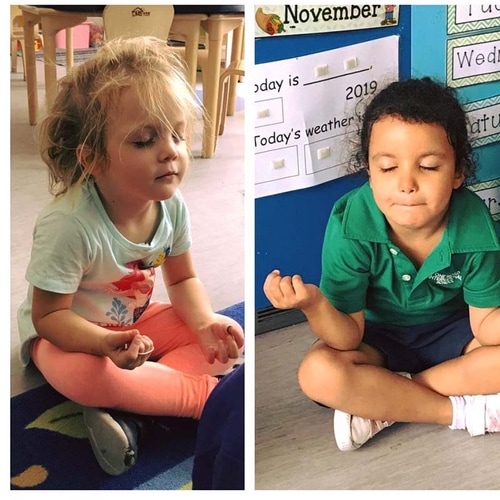The convenience of technology has revolutionised the way Singaporeans live, and being ‘connected’ is the new norm. Yet, this convenience of being constantly connected has resulted in a culture and habit of being ‘always-on’ where individuals feel the need to always be engaged in a fast-paced digital environment – both adults and children alike. There is also the anxiety of missing out that comes with this, which is particularly prevalent in children. Often they worry that if they are not on social media or logged in to online games or forums that they are not keeping up with the crowd.
Today, it is not uncommon to see children from as young as six years old scrolling through social media apps or watching the latest Netflix series on their parents’ smartphones. Multitasking has become the norm for this generation of digital natives. Often there are times when they may have the TV on at the same time as playing a game on their iPad and chatting to friends on their phone. This non-stop, passive stimuli that have captured the imagination and attention of younger generations may actually be preventing them from building the skills needed to focus and concentrate – essential human skills necessary for healthy brain development and knowledge acquisition. They have often become so reliant on technology that they have lost the ability to immerse themselves in activities such as reading, drawing, outdoor play and imagination.
The role of mindfulness

In keeping pace with the onslaught of information, children are finding it more difficult than ever to stay mindful in the present. They have become accustomed to reacting instantaneously, and it is during these young impressionable years that children should learn the importance of thinking calmly and considering the potential implications of their actions. They need time to reflect and recognise that they can make positive choices when interacting with others or the world at large. It is these instant reactions that can often lead to them getting into awkward or uncomfortable situations. For instance, they may fall out with a friend and then write something unkind about them on social media, which they later regret. The problem with technology is that once it is in the public domain, it is difficult to make it disappear.
The benefits of mindfulness

They learn to accept contrasting points of view and open their minds to new experiences, thereby developing meaningful connections with their peers and the world around them. They learn to address the root cause of their negative emotions, including anger, disappointment and anxiety, and to think twice before engaging in conflict. In a world where everything happens so instantly, being able to slow their world down is essential. It develops their spirit and makes them more resilient. This is particularly important in the world as we know it due to the COVID-19 outbreak, as we are living in unprecedented and uncertain times that have led to many unforeseen changes.
Developing mindfulness
Schools play a crucial role in providing a safe space to help students develop the habit of mindfulness. At One World International School, teachers use the practice of traditional meditation and concentration-based movements, such as yoga and Tai chi, to strengthen children’s social and emotional intelligence. These exercises encourage children to slow down their thought processes by focusing on the choreographed movements. These sessions also provide a change from their usual studies while supporting physical, emotional and mental wellbeing. As meditation teaches us to control our thoughts, mindfulness allows a calm thought process to naturally occur, uninfluenced by our reactionary emotions.
Katrina H., parent of two primary school students at OWIS, says, “The school is diverse and finds ways to celebrate it. The teachers and staff walk the talk, and in return, the kids learn directly how to be kind and mindful.”
By incorporating mindfulness into a daily practice, whether at home or in the classroom, students grow to be engaged, thoughtful individuals who approach situations with conscious consideration. It teaches them the importance of thinking before they act and the benefits of slowing down in our fast-paced world. This prepares them for the challenges that may arise from societal pressures and keep them grounded in the things that really matter.
To know more about OWIS, contact our Admissions Counsellor today or book a school tour.














